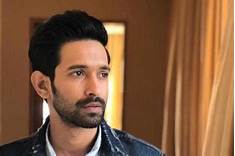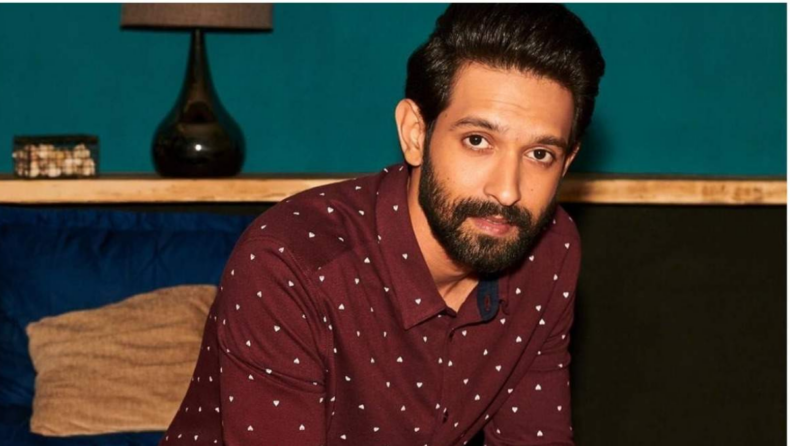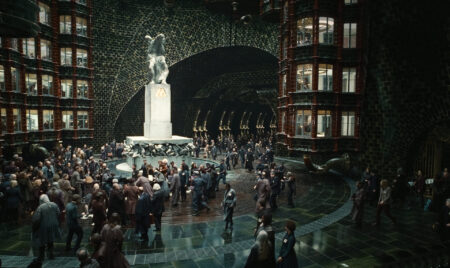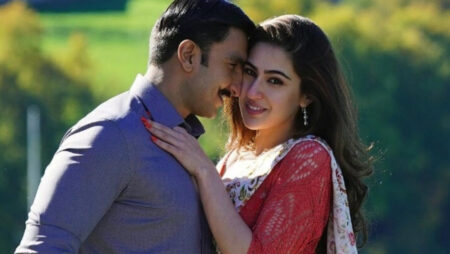I think that it is not good to bracket someone as a TV or Film actor
Recently Vikrant Massey and Saniya Malhotra visited and did an exclusive interview with Bollywood Hungama’s host Faridoon Shahryar and talked about their film “Love Hostel.” Vikrant talks about how every actor who gets a tag like this actor is an OTT actor, a TV actor, and this is a film actor. He said that I was just an actor.
We do work on every platform. I think it is not good to bracket someone as a TV or Film actor, but we are the only country where this bracketing happens. I have a prearranged fight that giving a tag or putting a nomenclator on people is not suitable for anyone, and now we have to stop dividing or giving a label to anyone.
Sometimes people do these things, and it happened many times in the past, happening with me and other actors who are present in our industry and will happen with those who join this industry in the future. But the only thing I can do is remove this tag or bracket from my name.
 I don’t want to be bracketed with a specific type of actor. So yes, I don’t want to limit myself; I want to do anything and everything I can. I am not formally trained, and I took the plunge at the age of 17 to learn the job and continue to do it.
I don’t want to be bracketed with a specific type of actor. So yes, I don’t want to limit myself; I want to do anything and everything I can. I am not formally trained, and I took the plunge at the age of 17 to learn the job and continue to do it.
Faridoon (host) also said that as such a young as you are hosting a show for 75 years of India’s independence, a lot of research has gone into it, and I think that makes you unusual. Where Is reply Vikrant said that I try, I feel that there is a lot of misinformation around specify in the last eight to ten years because of the advantage of social media.
I found this a reasonable opportunity to come out and talk about stories that we haven’t heard. I think it is very inspiring, intriguing, and also very informative at the same time. There is a shortage of informative content on television.
My first instinct is my guts about the selection and choosing of scripts. I have always believed that any artist, whether an author, painter, writer, or actor, is responsible for reflecting on the times or moments they are living in and where I come from; I think I went from a very regular middle-class family.
I feel, and I think that I want to bridge the gap drake disparity that is a specific section or type of society whose stories are never coming out in fount of us, in front of our world, or we never talk about them. Within my limited capacity, I want to bridge that disparity through the stories that we make or in I act.
Firdoon also asked Vikrant what you think these types of subjects like love hostel are maybe watched on OTT because In this you know that you will get a specific kind of audience that is ready for something not perhaps so regular content. Vikrant answered his question but said that I was still figuring it out; this change comes for the last 1 or 2 years or after covid comes.
I am also still learning and unlearning many things, so I don’t consider myself qualified to answer this question. But whatever I feel right now is that digitization defiantly expanded our boundaries. If a movie like love hostel will stream or be watched in 190 countries, maybe something happens, and someone gets influenced.
Whereas this same thing applied to us in the last seven-eight years because of the OTT platform, the kind of international content we as an audience are consuming has entirely changed, and the consumption pattern has changed. Approximately 50% of the content is consumed on 11 inches of mobile phone or maybe more.
Our tastes have drastically changed in the last few years. Today we are not making community-specific content; we are creating universal content in language. At least I can say that the previous two-three films I have done, e.g., “Hassena Dilruba,” the most-watched movie last year, is coming on OTT.
We probably couldn’t achieve that if we came to theaters; maybe we never know, but it’s happened on OTT. OTT is the platform that helps us reach on a much larger scale. With just one click on a button, you can choose whatever you want as an audience. I think OTT helps us a lot and connects us with our audience.
Edited By : Toshi Kumar
Published By : K. Bindhiya Prarthana













